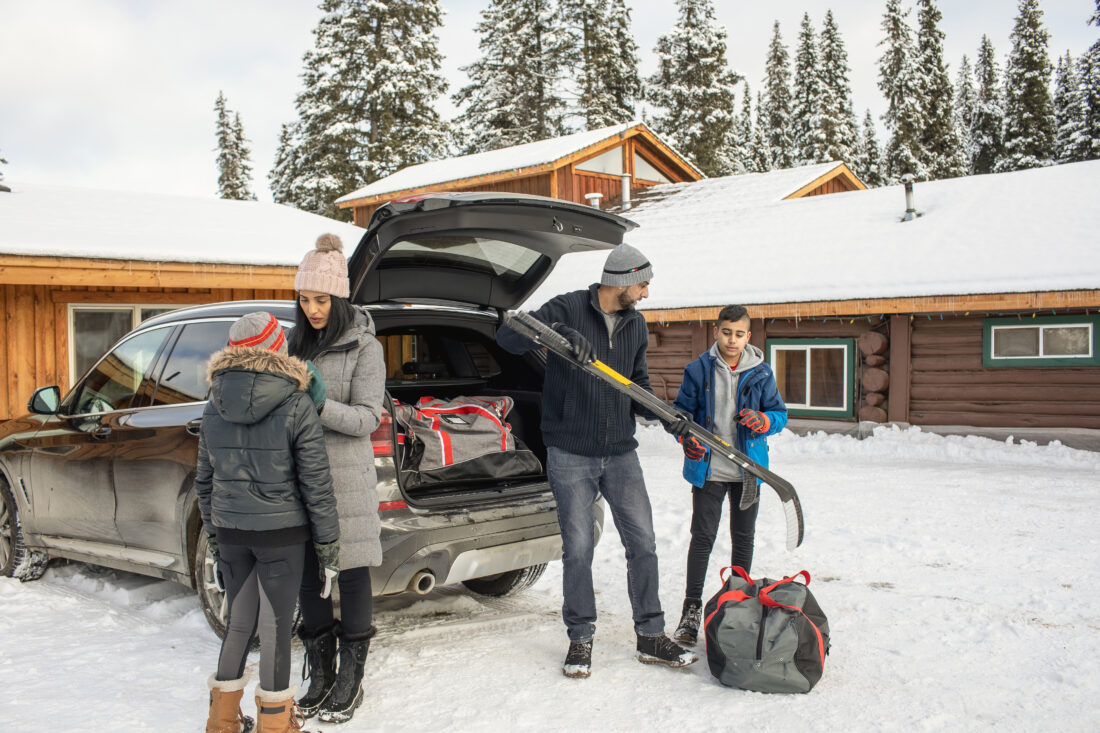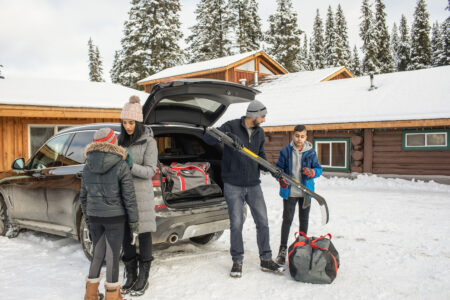The Airbnb tax you don’t see: Wasted food adds 5% to every stay

Metro photo
Lodgers staying at short-term rental properties throw away more than $2.3 billion worth of uneaten food every year. That’s according to a new study published by researchers at The Ohio State University. While it may not feel like a lot on an individual level, it adds up fast.
Almost half of people surveyed say they waste more food when they travel than they do at home. In the case of short-term rentals, that waste may be offset or minimized by the ability to shop locally, store and prepare food. Families, especially, can make and eat meals at the rental, rather than a restaurant. In fact, nearly all short-term renters say they prepare at least one meal in the rental unit, and 40% do at least one meal per day.
Shopping for a deal
From the data collected, researchers extrapolated the value of the wasted food averages out to just over 5% of the average rental fee, comparing it to an additional tax on staying in an Airbnb or Vrbo. The study authors also note that the actual numbers are probably higher, as Americans tend to underreport waste.
Generational differences also stood out. Older people tend to waste less, often the case regardless of whether they’re on holiday or not. Younger generations waste slightly more. Short-term rentals tend to be more affordable for traveling families, but each child brought on a trip generated a greater amount of uneaten food by the end of the stay. Look for ways to minimize waste, like this fun to graze, easily scaled up or down breakfast charcuterie board to reduce leftovers.
Three-quarters of respondents say they bring food prepared elsewhere back to their rental unit, while 6.3% say they try to prepare and eat all their meals on-site. The study notes that buying perishables and pantry items locally adds up to $34 per day.
“There are lots of estimates of how much tourists impact local economies, but this, to my knowledge, is one of the first documentations of how much people spend per day in groceries while they’re in an Airbnb,” explains Professor Brian Roe at the College of Food, Agricultural, and Environmental Sciences, lead researcher for this project.
“If people just realize uneaten food amounts to a 5% surcharge, either they can make sure they’re ready to transport food home if they’re in a car or can get it into the right hands for donation or composting at their rental location,” he adds. The study was published in the International Journal of Integrated Waste Management.
Waste not, want not
To avoid waste when traveling, take advantage of the benefits a short-term rental provides that not all hotel rooms do. Most Airbnbs come with a microwave, a full-size refrigerator and an oven or stove.
Plan ahead for the meals you’ll make at the short-term rental and budget your shopping accordingly. Look for meals or snacks you can make easily, can be spread out over a few days or for multiple uses. Homemade smoked salmon dip only takes about 10 minutes to prepare, then keeps for three days, as a snack, an appetizer or a spread for morning bagels and lunchtime sandwiches.
Pantry staples top the list of vacation groceries most commonly unused. Just like if you were to go camping, bring dry goods and spices in airtight Tupperware or disposable containers. Use what you need and take the rest home, minimizing your cost and waste.
If you’re planning to hit local attractions or amusement parks, you can pack lunches. Or you can just take into account that some meals will be eaten in a restaurant or food truck. Leave some flexibility in your meal plan for that, as well as any leftovers.
Always shoot to underbuy any perishables like ice cream or meat that may not survive the drive or flight home. If you are driving, you can freeze some of these items, like unused milk, butter or cheese, the night before you depart, so they stay fresh longer in the cooler. Just before you leave, prepare a snack you can take with you. Something like easy cowboy caviar can be stored in a bowl with a lid and passed around with a bag of chips at the rest stop, rather than hitting the drive-thru.
Depending on the arrangement, you may never see your Vrbo hosts, or they may be next door or even in the same house. If you do connect with them, you can always ask if they have a suggestion for what to do with excess uneaten food. They may even accept it as a gift.
Trash or treasure
The OSU study stipulated that some of the uneaten food left behind might be taken home by the cleaning crew or stashed in the pantry for future guests at the rental unit. But the majority just ends up in the trash. Feeding America reports $473 billion worth of food is thrown away each year in the United States. They suggest if you have unused food with packaging intact, you can look for a food bank or church on your way out of town to donate it.
The study found, unfortunately, that almost no one composted or donated uneaten food. However, the renters they polled did say they would prefer instructions on how to discard food. More than 20% of hosts provide instructions on what to do with leftover food, and 46% present an opportunity for renters to recycle.
Three-fourths of respondents said they would consider it somewhat or very helpful to have guidelines in the house manual or welcome book owners provide. “Given what we saw from consumers, there seemed to be interest in understanding if food could be donated or composted, and if so, how and where,” Roe says.
“One can imagine this as a simple addition to a host’s information booklet – probably a very doable implementation. And if that knocked that $2 billion number down to $1.5 billion, that’s half a billion dollars less each year of wasted food.”
Reduce the excess
While some wasted food is inevitable, regardless of circumstances, mindful travelers and hosts can help reduce that quantity. Whether it’s carrying it home, leaving it for a future guest or composting it, everyone can do their part.
— — —
Emily Dingmann is the writer, recipe developer, content creator and founder behind My Everyday Table. She creates easy recipes for busy families using her degree in nutrition and background as a Certified Intuitive Eating Counselor. Her work has been featured on the Today Show, MSN, Self Magazine, Fitness Magazine, Twin Cities Live and more.




